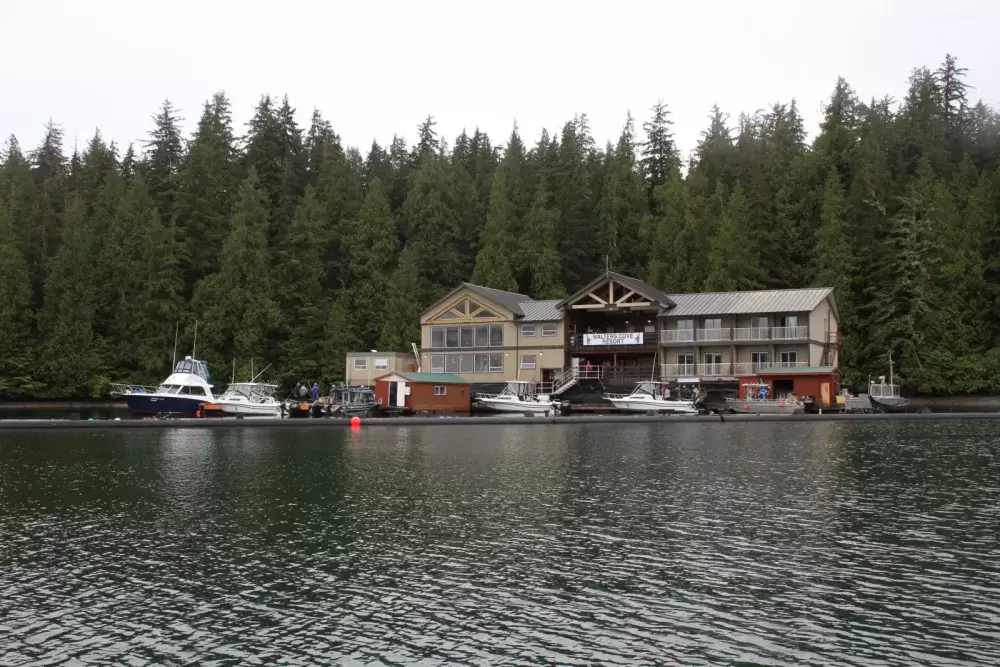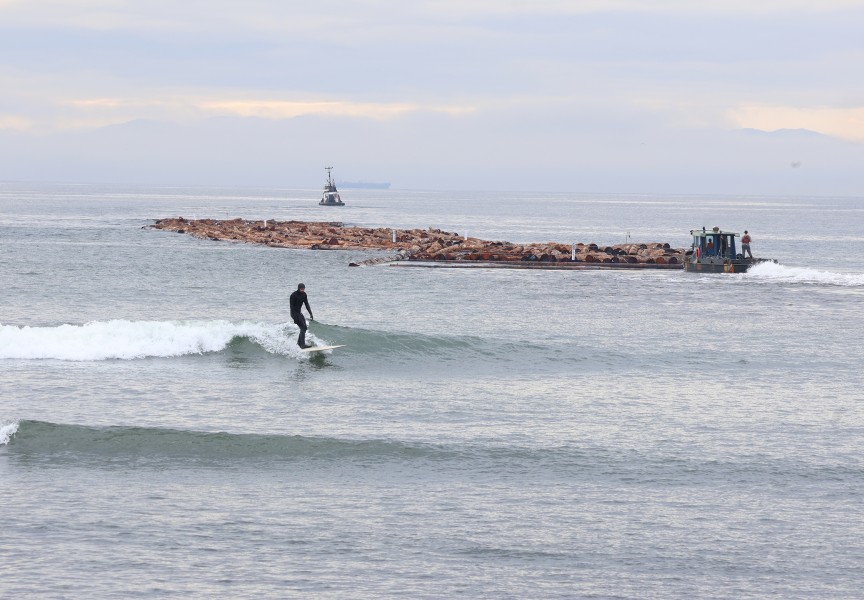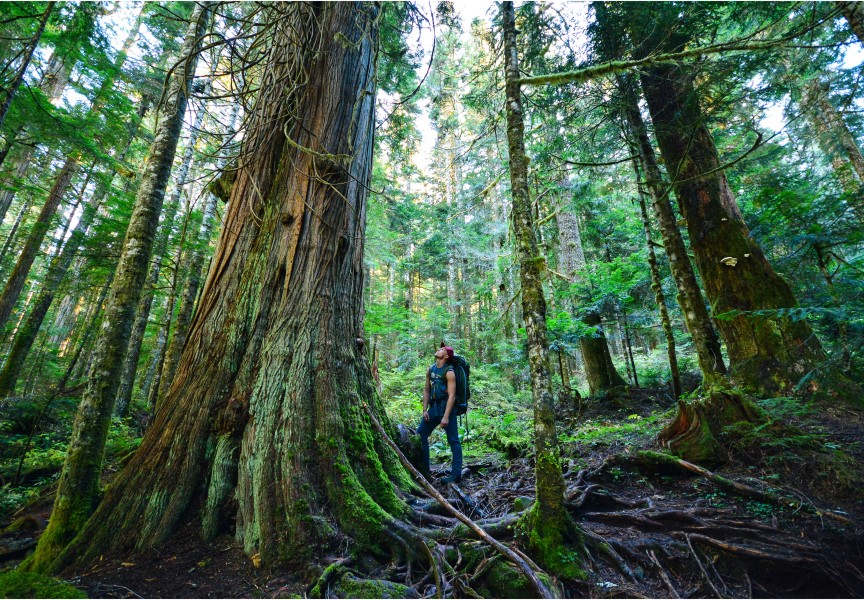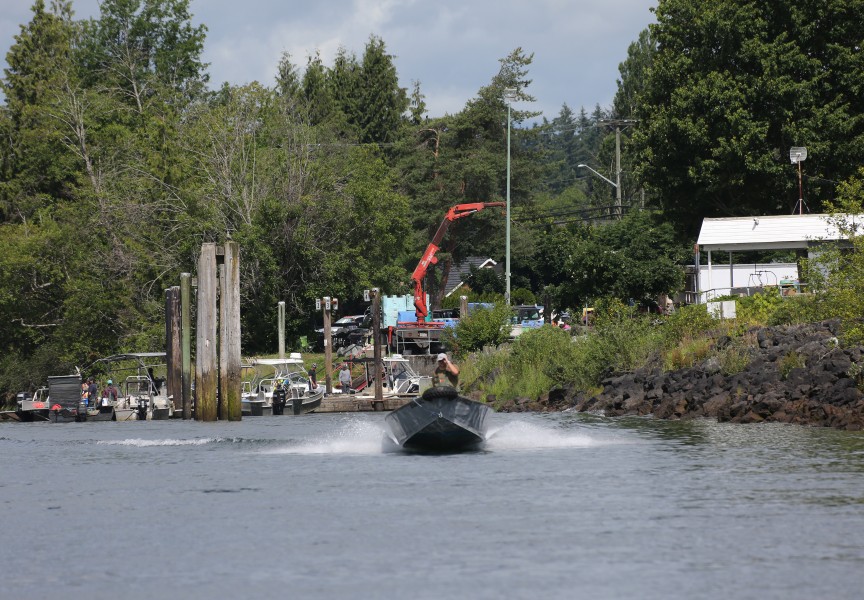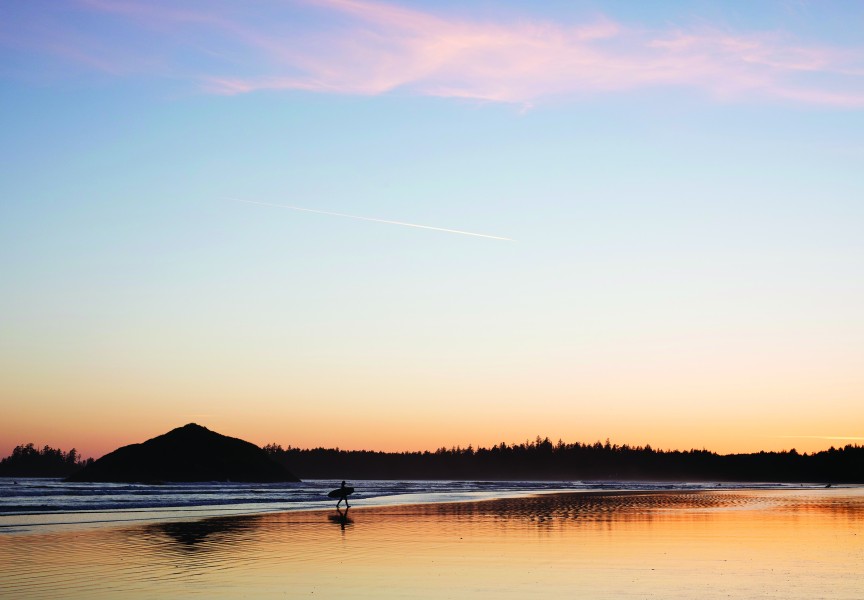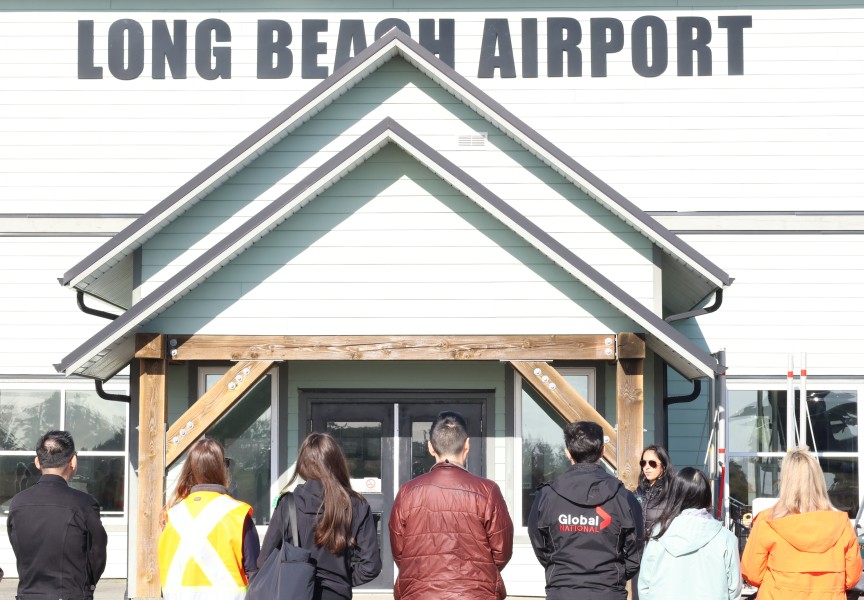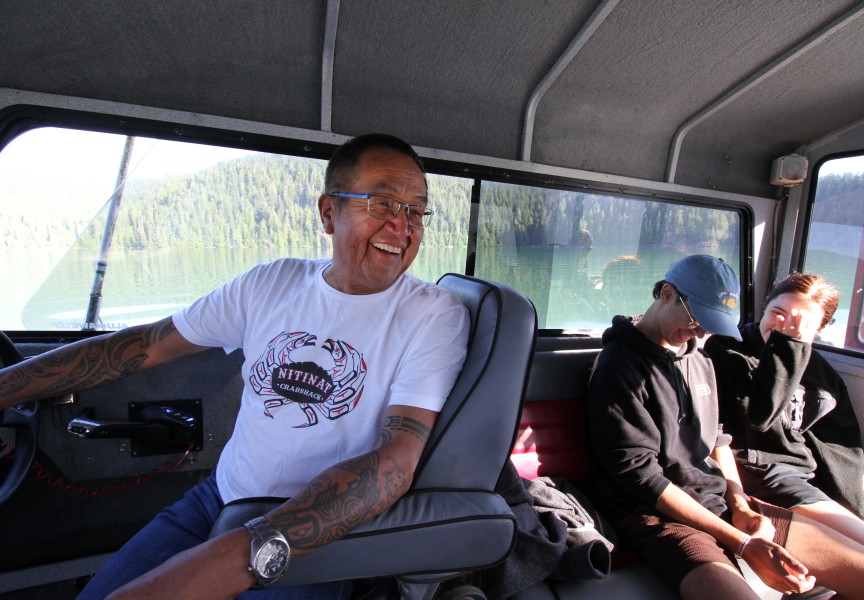The Ka:'yu:'k't'h'/Che:k'tles7et'h' First Nations are looking at a bigger future for its Walter’s Cove Resort, with the purchase of a 23-room luxury floating facility planned to become more than its original fishing lodge design.
The northernmost Nuu-chah-nulth nation recently announced the acquisition of the facility, encompassing a total investment of over $2 million, including more than $1.5 million for the structure plus necessary startup costs ahead of the 2023 fishing season. In the interest of boosting tourism potential on Vancouver Island, the Island Coast Economic Trust provided the First Nation with $300,000 to help with the acquisition.
Known as the Englefield, the floating facility was purchased from Vancouver Island Forest and Marine, which previously used the barge to house forestry workers on various parts of the West Coast. The Englefield was leased by Ka:'yu:'k't'h'/Che:k'tles7et'h' to serve as Water’s Cove Resort last year, a trial run that proved the facility to be a viable investment.
“The purchase of the floating lodge will allow the nations to generate community and economic benefits from the sports fishing sector – a significant economic driver and large-scale seasonal employer within Kyuquot Sound,” said the First Nation’s Chief Administrative Officer Cynthia Blackstone in a press release. “This acquisition also allows us the possibility to explore new eco and cultural tourism projects in the area. Knowing we have adequate and permanent housing to support the staff and rising visitor market opens several new business opportunities for us.”
With space for up to 50, the barge offers Water’s Cove a much larger facility than the resort’s original nine-room structure on Walter’s Island. Since opening in 2014, the sports fishing market showed promise for the First Nation’s tourism aspirations, with annual revenue growing from approximately $150,000 to nearly $850,000 in 2019. About half of the resort’s customers have come from the United States, and many clients fly into the Kyuquot destination from Vancouver.
But amid a closure during the COVID-19 pandemic, significant structural issues were found in the resort’s original building. Facing $1.5 million in repairs to bring the foundation to safe standards, by August 2021 the decision was made to close the resort indefinitely.
Hope surfaced during the following winter with the option of leasing the Englefield, a facility that was originally designed to be a fishing lodge when it was built in 2000. By June 23, 2022 Water’s Cove was able to open to visitors for the first time in two years.
The resort had a successful season of approximately 260 guests, surpassing its goal of 232, said General Manager Terry Schultz.
“Our returning guests who came to the old lodge loved it,” he said. “We hit our revenue targets, the fishing was good and the weather was decent.”
“I think it was a result of pent-up demand,” said Gary Wilson of the last fishing season, who is CEO of the Ka:'yu:'k't'h'/Che:k'tles7et'h' First Nations Group of Businesses, which is now known as Tiičma Enterprises. “We targeted 85 per cent of what we would normally get in a season, and we exceeded that.”
Over the winter the floating facility has been moved to dock in Vancouver, but the First Nation awaits its return in May to again be anchored at Amos Island, which is one kilometre from the Ka:'yu:'k't'h'/Che:k'tles7et'h' village of Houpsitas.
Now that the First Nation owns the barge, plans are extending beyond the facility’s sports fishing season, which ends in early September.
“Beyond the sport fishing we’re working with the nation to utilise the asset for family programs, community services programs, training as well as regional meetings with folks like the Ha’wiih council and others,” said Wilson. “We recognise there’s a need and a demand. We don’t have currently community facilities to support those types of meetings and training that’s required throughout the year.”
More Ka:'yu:'k't'h'/Che:k'tles7et'h' citizens are also being engaged for chartering their boats as fishing guides, increasing the resort’s 2023 fleet to accommodate 20 guests at a time.
“Currently we only have seven boats, two persons per boat, that’s a maximum of 14 people,” said Wilson of the current limitations. “We want to make sure that we have more vessels to supply the demand.”
Looking ahead, the First Nation plans to move the floating facility to Amos Island’s beach by the spring of 2025.
“You don’t have to deal with anchoring systems and floating and storms. Operational costs are cheaper on land too,” explained Schultz, noting that a floating lodge is required to be docked every five years for maintenance. “We would have to tow it out of the west side of the island. You’re looking at $100,000 to tow it and another $300,000 to dry dock it, sand blast it and paint it, sound test the hull, all that kind of stuff, which is what’s required for an accommodation barge. You lose all those operational costs by having it on shore.”
Although the First Nation is expecting to exceed last years’ numbers, the ongoing declines of Pacific salmon stocks present an undeniable challenge for the sports fishing industry. In the future the operation aims to attract more visitors hungry for outdoor experiences that don’t involve catching fish. To widen its offerings, in early 2022 Ka:'yu:'k't'h'/Che:k'tles7et'h' bought West Coast expeditions, an adventure tourism company with more than 50 years of operating in Kyuquot Sound. With its base camp located nearby on Spring Island, West Coast Expeditions offers hikes and multi-day kayaking excursions.
Being part of the Maa-nulth treaty has enabled the First Nation to swiftly explore its economic interests in its territory, said Wilson.
“They have ownership and they have control over those natural resources and how we do business on the territory,” he said. “When looking at such opportunities, we’re not expecting to go to the federal government or provincial government for permission and further, we make those decisions internally as a government. It’s more efficient for us as we bring forward the plans and the proposals.”

